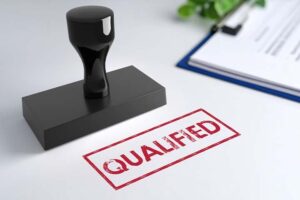Table of Contents
Boilers are needed in many homes, especially in the cold months. They provide warm and warm water, which helps us to stay warm and comfortable. But in order to work well for the boiler, it is important to monitor the boiler pressure – an important thing.
You can ask, “What should be the pressure in the boiler?” The answer depends on whether your heating is on or closed and what kind of boiler you have. In this blog we will cover:
- The correct boiler pressure range
- What affects boiler pressure
- Signs of high or low pressure
- Special advice for combi boilers and Worcester Bosch boilers
- Answers to common questions like: Is low boiler pressure dangerous?
Let’s dive into everything you need to know.
What Is Boiler Pressure?
The boiler pressure is a balance between water and air inside your heating system. It is measured in posts (rod is a pressure unit). Very much or very low pressure can affect how well the boiler works. In some cases, it may also close the heating.
Why Boiler Pressure Matters
If your boiler pressure is very low, you cannot get hot water or heating. If this is too high, your system may be damaged or leaked. Keeping the pressure in the correct reach helps the boiler running steadily and long.
Air Source Heat Pump Grants
What Should Boiler Pressure Be When Heating Is Off?
Start with pressure when the heating stops – it is called “cold pressure”.
- The ideal pressure when the heating is off is between 1.0 and 1.5 bar.
This is the standard range for most modern boilers, including combi boilers and Worcester Bosch models. If the pressure is below 1.0 bar, your boiler might not work properly.
What Should Boiler Pressure Be When Heating Is On?
Now, what about when your boiler is running and heating your home?
- The pressure when heating is on can rise to around 1.5 to 2.0 bar.
This increase is normal because water expands when heated. But if the pressure goes much above 2.5 or 3.0 bar, that could be a problem.
What Affects Boiler Pressure?
Boiler pressure changes for many reasons. Here are a few things that can affect it:
1. Leaks in the System
Even a small water leak in a pipe or radiator can lower the pressure. Look around for damp patches or dripping pipes.
2. Bleeding Radiators
When you bleed a radiator to release trapped air, you also lose water from the system. This can drop the pressure.
3. Faulty Pressure Relief Valve
The pressure relief valve helps keep pressure in check. If it’s not working right, your pressure can go too high or too low.
4. Faulty Expansion Vessel
The expansion vessel helps manage pressure when water heats up. If it’s broken, pressure may rise too fast.
Signs of Low Boiler Pressure
Here’s how to tell if your pressure is too low:
- Your radiators are not getting hot
- Hot water takes longer or is not hot enough
- You see an error code or red warning light on the boiler
- The pressure gauge reads below 1.0 bar
Low pressure can stop your boiler from working at all.
Is Low Boiler Pressure Dangerous?
No, low boiler pressure is not dangerous. But it means your boiler might not heat your home or water properly.
You should top up the pressure to fix it. Most modern boilers let you do this yourself. There’s a filling loop (usually a small flexible pipe) under the boiler. You open the valves to let more water into the system. Always follow the instructions in your boiler manual.
Signs of High Boiler Pressure
On the other hand, high pressure can cause leaks or damage. Watch for these signs:
- Boiler makes banging or clanking noises
- You see water leaking from pipes or the pressure relief valve
- The pressure gauge reads above 2.5 or 3.0 bar
- Your boiler keeps shutting off
High pressure might not be immediately dangerous, but it’s not good for your system.
How to Fix Boiler Pressure?
If Pressure Is Too Low:
- Turn off the boiler
- Find the filling loop
- Slowly open the valves
- Watch the pressure gauge
- When it reaches around 1.5 bar, close the valves
- Turn the boiler back on
If Pressure Is Too High:
- Turn off the boiler
- Bleed one radiator a little
- Check the pressure drops
- Repeat until it’s back in range
- Call a heating engineer if it stays high
Never try to take apart the boiler yourself. If you’re unsure, call a professional.
What Should Be the Pressure in a Combi Boiler?
Combi boilers are popular in modern homes. They heat water on demand, without a separate tank.
So, what should be the pressure in a combi boiler?
- When off: 1.0–1.5 bar
- When on: 1.5–2.0 bar
This is the same range as other modern boilers. If the pressure is outside this range, you may see an error code or lose heating.
What Should Be the Pressure in a Boiler Worcester Bosch?
Worcester Bosch boilers are the UK and one of the most reliable brands around the world. They are known for quality and reliability. But they also need the right pressure to work well.
So, what should be the pressure in a Worcester Bosch boiler?
- When off: 1.0 to 1.5 bar
- When on: up to 2.0 bar
Some Worcester models show the pressure digitally on a screen. Others use a dial. If the pressure is too low or too high, the performance may show a warning such as “EA”, “E9” or “CE”.
For details, check your user manual, or go to the official site of Worster Bosch.
When to Call a Heating Engineer?
You can fix boiler pressure yourself in many cases. But call a professional if:
- You keep losing boiler pressure often
- You can’t find a leak, but pressure keeps dropping
- The pressure goes up too fast
- The boiler makes strange sounds or smells
- You see constant leaks around pipes or the boiler
A Gas Safe registered engineer will check the system and repair it safely.
Tips to Keep Boiler Pressure Stable
- Check pressure monthly, especially in winter
- Bleed radiators properly after topping up pressure
- Don’t overfill — stay below 2.0 bar when cold
- Get your boiler serviced yearly
- Fix leaks quickly to avoid pressure drops
- Use corrosion inhibitors to protect the system
Regular boiler maintenance helps avoid pressure problems and keeps your house warm throughout the year.
Final Thoughts
Understanding your boiler pressure is important to run your heating system evenly. Whether you own a Kombi boiler, Warster Bosch or another model, the ideal pressure area is almost always:
- 1.0 to 1.5 bar when off
- 1.5 to 2.0 bar when on
Follow the boiler meter. If the pressure is too high or low, check the leak or error code. And if things don’t look right, don’t hesitate to get help from the expert.
Keeping the kettle under proper pressure saves money, improves efficiency and keeps home warm and safe.
Frequently Asked Questions
The ideal pressure occurs between 1.0 and 1.5 times when the heating stops. If it falls below 1.0, you may need to use the filling loop.
When the boiler heats your home, the pressure can grow from about 1.5 to 2.0 times. It is normal and expected.
The Combi boiler should also have a cold pressure of 1.0 to 1.5 times, and when heated, there should be a warm pressure of 1.5 to 2.0 times.
Worcester Bosch boilers work best at 1.0–1.5 times up to 2.0–1.5 times when cold and warm. Check the digital or ring meter on your model for current readings.



